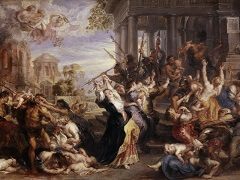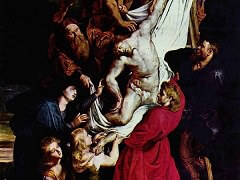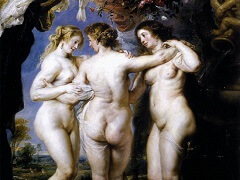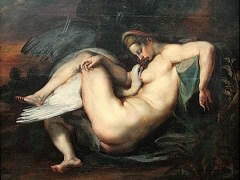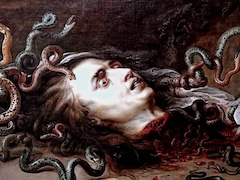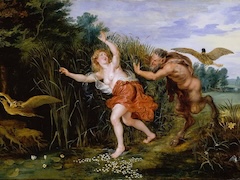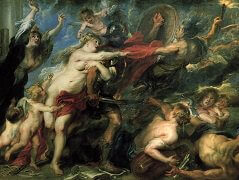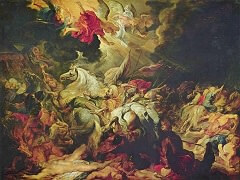The Judgement of Paris, 1639 by Peter Paul Rubens
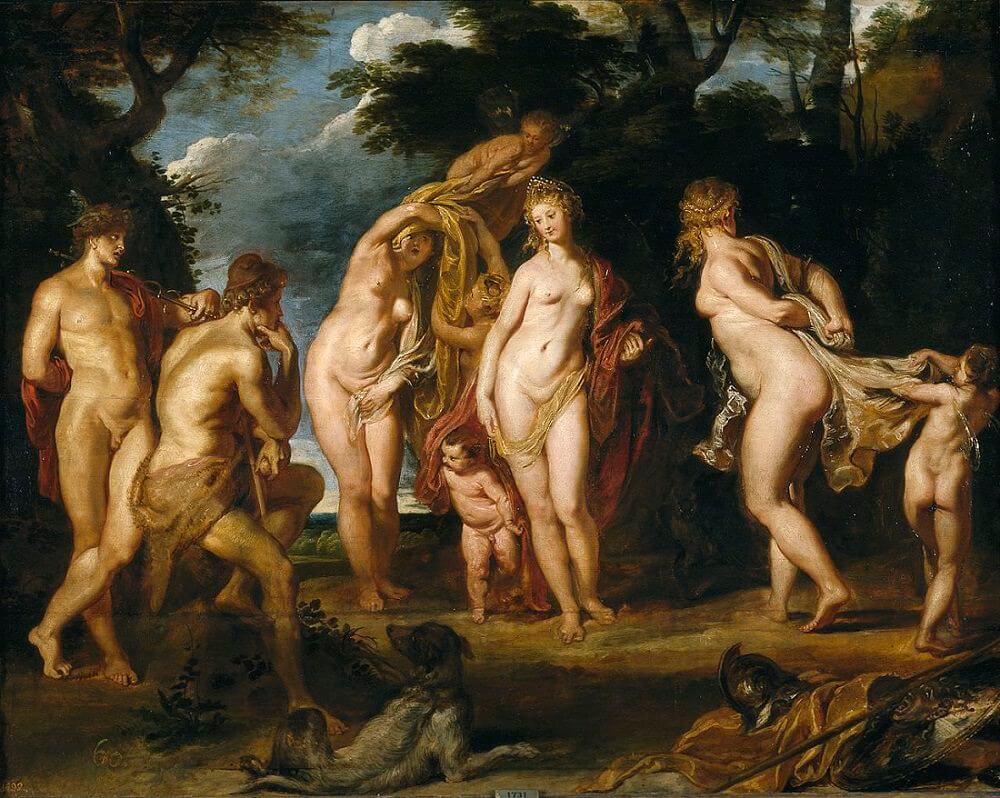
The Judgement of Paris is a story from Greek mythology, which was one of the events that led up to the Trojan War and (in slightly later versions of the story) to the foundation of Rome.
The story begins at the Wedding of Peleus and Thetis to which all of the gods were invited, all except Eris, the goddess of discord. When she appeared at the festivities, she was turned away, and in her anger cast a golden
apple amongst the assembled goddesses addressed "To the Fairest." Three goddesses laid claim to the apple--Aphrodite, Hera and Athena. Zeus was asked to mediate and he commanded Hermes to lead the three goddesses to Paris
of Troy to decide the issue. The three goddesses appearing before the shepherd prince, each offering him gifts for favour. He chose Aphrodite, swayed by her promise to bestow upon him Helene, the most beautiful woman, for
wife. The subsequent abduction of Helene led directly to the Trojan War and the fall of the city.
For the pictorial decoration of the Buen Retiro, a new pleasure palace on the eastern border of Madrid, the Spanish court in the 1630s commissioned and acquired many paintings from Italian and Flemish masters and workshops.
The Flemish acquisitions were the responsibility of the cardinal infante Ferdinand, king Philip IV's brother and governor of Flanders, who flooded the Rubens workshop with commissions. For the Retiro he obtained more than
a hundred paintings, including landscapes, allegories of the seasons and months of the year, hunting scenes and illustrations of Aesop's fables. Rubens himself produced the luminous Judgment of Paris, a painting much
admired by Ferdinand despite his characteristically Spanish reservations about the fleshy goddesses.



